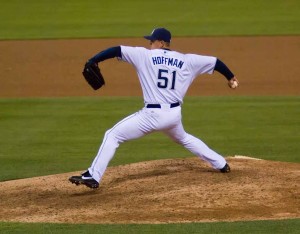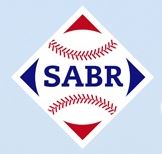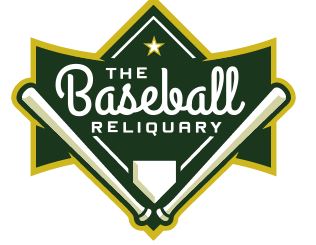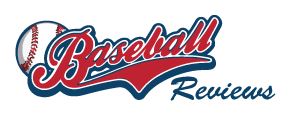The MLB debate season is officially open! The Baseball Writers Association of America (BBWAA) Hall of Fame ballots (for 2018 induction) are out and the season for discussion and debate is officially underway. This year’s traditional ballot includes 14 holdovers from last year, along with 19 newcomers.
PARTICIPATE IN BASEBALL ROUNDTABLE’S FAN HALL OF FAME BALLOT
(Link in paragrpah below.)
Baseball Roundtable is interested in whom you – as fans – would vote into the Hall of Fame. So, here’s a line to the Baseball Roundtable Fan HOF Ballot – click here. Remember, you can vote for up to ten of the nominees for 2018 induction. If you want to read through the nominees’ bios first, there is another link to the Fan Ballot at the end of this post.
______________________________________________________________
BASEBALL HALL OF FAME ELIGIBILITY
The basic rules for eligibility are that a player must have played at least ten seasons and be retired for at least five years. In addition, the player must be approved for the ballot by the Hall of Fame Screening Committee.
A player can remain on the ballot for up to ten years, but must receive at least five percent of the vote in the preceding year’s ballot to remain on the ballot. Each voter can vote for up to ten candidates. Election requires that a player be named on at least 75 percent of the ballots cast.
In this post, we’ll take a look at how BBRT would vote – if I had a ballot – as well at whom BBRT expects the BBWAA to vote in. Notably, BBRT tends to be less stingy then the BBWAA voters. I’ll list a full roster of ten candidates (in order of my preference) who would receive my vote.
BASEBALL HALL OF FAME CRITERIA FOR ELECTION
“Voting shall be based upon the player’s record, playing ability, integrity, sportsmanship, character, and contributions to the team(s) on which the player played.”
—–LIKELY ELECTEES FOR 2018—–
BBRT anticipates that four players will be elected. Trevor Hoffman was very close last year (74 percent) and Vlad Guerrero topped 70 percent in his first year on the ballot. History would indicate those two will go over the top on this ballot. Of the newcomers, Chipper Jones looks like a sure bet and Jim Thome’s 600+ home runs should make him a first-ballot selection (although some voters may hold back “first-ballot” votes due to his extended role as a designated hitter. In order, I expect these four to finish:
1) Chipper Jones;
2) Trevor Hoffman;
3) Vlad Guerrero;
4) Jim Thome.
Note: For BBRT’s take on the Modern Game Era Ballot, click here.
My dark horse candidate for this year is Mike Mussina.
What follows is a look at all the players on the ballot – starting with the ten players BBRT would vote for (if I had voting rights). I would note that you will not find those caught up in the PED-controversy on my ballot. While I think they will eventually be elected/inducted, if I had a ballot, I’d prefer they made the 75 percent without my vote. Still, given their place in the history of the game, I’d probably break down and vote for the best of the group when they reached their final year of eligibility.
So, here is BBRT’s Hall of Fame Ballot – again, if I had one – with the players listed in BBRT’s order of preference.
GROUP ONE – Should Be No Doubt, These Players Belong in the Hall Now
Trevor Hoffman (Closer, 1993-2010) – Third year on the ballot, 74.0 percent support last year.
In BBRT’s opinion, Trevor Hoffman should have been elected in his first year on the ballot. He is one of only two relievers in MLB history to reach 600 saves (601) – trailing only Mariano Rivera (652) all-time. Hoffman and Rivera, in fact, are the only closers to reach 500 saves. (Note: Hoffman was also the first pitcher to reach the 500- and 600-save mark.)
Hoffman led the NL in saves twice and reached 30 or more saves 14 times (with a high of 53 in 1998). He had a career record of 61-75, with a 2.87 ERA over 1,089 1/3 innings in 1,035 games – averaging 9.4 strikeouts per nine innings. Hoffman’s nine seasons of 40 or more saves is the MLB record (tied with Mariano Rivera). Hoffman pitched for the Marlins (1993), Padres (1993-2008) and Brewers (2009-10). Hoffman appeared in 12 post-season games, going 1-2, 3.46 with four saves.
Hoffman’s 600 saves should be enough for the Hall – and, after coming so close last year, he should top the 75 percent mark in this year’s voting.
Trevor Hoffman made his final All Star team in 2009 – at the age of 41 – in a season in which he recorded 37 saves and put up a 1.83 earned run average for the Brewers.
Trevor Hoffman’s best season: In 1998, Hoffman appeared in 66 games for the Padres, converting 53 of 54 save opportunities. On the season, he was 4-2 with a 1.48 ERA, striking out 86 hitters in 73 innings, while walking just 21. He was selected to the NL All Star team, finished second in the Cy Young Award voting and seventh in the MVP race.
__________________________
Chipper Jones (Third Base, 1993, 1995-2012) – First year on the ballot.
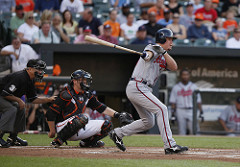
Photo by Keith Allison 
BBWAA voters are traditionally stingy with their votes for first-ballot players. Jones, however, deserves to claim his spot in Cooperstown in his first year of eligibility – and I am convinced he’ll be making the trip.
Jones, a switch-hitter, played all 19 of his MLB seasons in a Braves’ uniform and put up some impressive numbers: a .303 lifetime average; 2,726 hits; 468 home runs; 1,623 RBI, 1,619 runs scored. His 1,623 RBI are the 34th all-time, the most ever for a third baseman and the second-most ever for a switch hitter. His 1,619 runs scored are 46th all-time and fifth-most for a switch hitter; while his 468 home runs are 33rd all-time and the third-most ever by a switch hitter. Jones also drew 1,512 walks (versus 1,409 strikeouts) – 16th all-time and third among switch-hitters.
Chipper Jones hit .303 as a right-handed hitter and .304 when swinging from the left side – one of only two switch hitters with 5,000 or more at bats to top .300 from both sides of the plate.
Jones was an eight-time All Star, won the 2008 NL batting title with a .364 average and was the 1999 NL MVP. He hit 20 or more home runs in 14 seasons (six seasons of at least 30); topped .300 in 10 full seasons; reached 100 or more RBI nine times; and scored 100 or more runs in eight campaigns. Jones also played in 93 post-season games, hitting .287, with 13 home runs and 47 RBI.
Chipper Jones’ best season: In 1999, Jones hit .319, with 45 home runs, 110 RBI and 116 runs scored. That performance earned him the NL MVP Award and Silver Slugger recognition. (Surprisingly, he was not on the 1999 NL All Star team. The Diamondback’s Matt William started and the third-base reserves were the Pirates’ Ed Sprague and the Padres’ Phil Nevin.)
Despite his gaudy numbers Jones is not likely to be a unanimous selection. Again, BBWAA voters are notoriously stingy with first ballot votes and seem adverse to the prospect of a unanimous selection – and they could point to the facts that Jones only once led the NL in one of the major offensive categories (his 2008 batting championship), won only two Silver Slugger Awards and has no Gold Gloves on his HOF resume.
________________________
Vlad Guerrero (Outfield/Designated Hitter, 1996-2011) – Second year on the ballot – 71.7 percent last year.
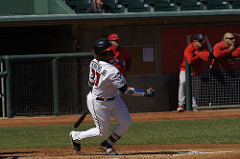
Photo by mwlguide 
When your nickname is Vlad the Impaler, you better put up some solid offensive numbers – and Vlad Guerrero did. Guerrero was BBRT’s dark horse candidate for induction last year and he came very close. (Again, the BBWAA has a record for first-ballot stinginess.) He actually finished with a higher level of support than I anticipated, so I’m confident he will go over the top this year.
Guerrero put up a .318 career batting average (2,147 games over 16 seasons), hit 449 career home runs (including eight seasons of 30+ and a high of 44 for the 2000 Montreal Expos) and collected 1,496 career RBI. A feared slugger, he also led his league in intentional walks five times. Guerrero had 13 seasons with a batting average of .300 or better (a high of .345 in 2000), 10 seasons of 100+ RBI, six seasons of 100+ runs scored and four campaigns of at least 200 hits. Known (sometimes criticized) as a free swinger, Guerrero actually never struck out 100 times in a season.
Vlad Guerrero collected 1,375 hits in the AL and 1,215 hits in the NL. Others with 1,000 or more safeties in both the AL and NL include: Alfonso Soriano, Dave Winfield, Frank Robinson, Fred McGriff, Carlos Lee and Orlando Cabrera.
Guerrero led his league in hits once, runs once and total bases twice, while making nine All Star squads, earning eight Silver Slugger Awards and the 2004 AL MVP Award. Guerrero hit .263-2-20 in 44 post-season contests. Guerrero played for the Expos (1966-2203); Angels (2004-2009); Rangers (2010); and Orioles (2011).
Vlad Guerrero’s best season: In 2002, Guerrero hit .336 for the Expos, leading the NL in hits (206), while bashing 39 home runs, stealing 40 bases, driving in 111, scoring 106 and drawing a career-high 84 walks (versus 70 strikeouts). He also led the NL in total bases with 364.
__________________________
GROUP TWO – Should Get In On This Vote, But May Stir Some Debate
Jim Thome (First Base/Designated Hitter/Third Base, 1991-2012) – First year on the ballot.
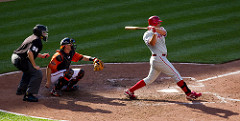
Photo by Keith Allison 
BBRT believes Jim Thome’s 612 home runs (eighth all-time) and 1,699 RBI (26th all-time) should merit automatic first-ballot election. Thome also ranks 41st all-time in total bases Gentleman Jim had sixteen seasons of 20 or more home runs (reaching thirty or more 12 times, 40 or more six times and a high of 52 in 2002). He also topped 100 RBI nine times and 100 runs scored eight times. Thome also ranks seventh all-time in walks (1,747) and 41st all-time in total bases. In addition, he currently falls just outside the top fifty all-time in runs scored (1,583, good for 51st). He was an offensive force to be reckoned with. He played for the Indians (1991-2002, 2011); Phillies (2003-2005, 2012); White Sox (2009); Dodgers (2009); Twins (2010-2011); and Orioles (2012). His final line was .276-612-1,699 in 2,543 games (22 seasons).
Thome was a five-time All Star, won the 2003 NL home run crown (47 for the Phillies) and led his league in walks three times. While he hit only .211 in 71 post-season games, he slugged 17 home runs and drove in 37 runs in those contests.
Jim Thome is the current MLB record holder in regular-season walk-off home runs with 13.
Working against Thome as a first-ballot inductee will be the fact that he started 813 games (just over one-third of his career starts) at designated hitter. (Voters have shown a bit of prejudice against DH’s in the past.) In addition, despite his 612 round trippers, Thome has only one league home run crown on his HOF resume.
Still, Thome would get BBRT vote, even as a first-ballot candidate. I think he will get the 75 percent in this voting, but it may be closer than expected.
_______________________
Mike Mussina (Starting pitcher, 1991-2008) – Sixth year on the ballot 51.8 percent last year.
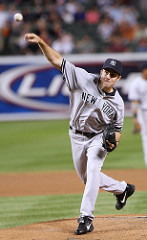
Photo by Keith Allison 
Mike Mussina built a 270-153 record, with a career 3.68 ERA and 2,813 strikeouts over 18 seasons. While only once a 20-game winner (in his final season, at age 39), Mussina won 18 or 19 games five times, leading the AL with 19 wins in 1995. In his first three full seasons in the major leagues (1992-94), Mussina put up a .700 or better winning percentage each year (.783, .700, .762). His record over that span – for the Orioles – was 48-16.
Mussina was a five-time All Star and a seven-time Gold Glove winner. He recorded a .650 or better winning percentage in nine seasons, with a career (and league-leading) high of .783 in 1992. Mussina ranks among the the top 25 pitchers all-time in strikeouts (20th) and strikeout-to-walk ratio (23rd). While the lack of a Cy Young Award on his resume may hurt him, he finished his career 117 games over .500 – and history says 100 or more wins than losses should be good for a ticket to the Hall. Mussina appeared in 23 post-season games, with a 7-8 record and a 3.42 ERA. He pitched for the Orioles (1991-2000) and Yankees (2000-2008). Mussina went 7-8, 3.42 in 23 post-season games (21 starts).
Mussina deserves (and, BBRT believes, will eventually be awarded) a spot in Cooperstown, but is unlikely to close the gap between 51.8 percent and the necessary 75 percent in this year’s voting. A move to 62-65 percent would be an important step in the right direction.
On September 2, 2001, Mussina – pitching for the Yankees – retired the first 26 Red Sox batters he faced and came with one strike of a perfect game. Mussina had a 1-2 count on pinch-hitter Carl Everett before Everett blooped a single to left-center. Mussina ended up with a 1-0, one-hit shutout victory.
Mike Mussina’s best season: Mussina may have saved his best for last. In his final season (as a Yankee), at age 39, he recorded his first twenty-win campaign. That year, Mussina went 20-9, 3.37 – and proved his durability by leading the AL in starts with 34, logging his 11th season of 200 or more innings pitched and earning his fifth Gold Glove
_______________________
Omar Vizquel (Shortstop/Third Base, 1989-2012) – First year on the ballot.
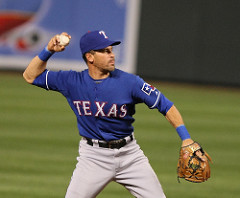
Photo by Keith Allison 
Vizquel earns BBRT’s vote – and should earn his way into the Hall of Fame – more with his glove (eleven Gold Gloves) than his bat. However, voters should be mindful of the fact that he finished his 24-season MLB career just 123 hits short of that milestone 3,000 safeties. Vizquel delivered premier defense to the Mariners (1989-1993); Indians (1994-2004); Giants (2005-2008); Rangers (2009); White Sox (2010-2011); and Blue Jays (2012).. He was a three-time All Star – and put together a string of nine straight Gold Gloves at shortstop (1993-2001).
Omar Vizquel led his league in sacrifice bunts four times.
In the field, Vizquel is the career fielding percentage leader (.9847) among shortstops with at least 500 games at the position. He is also the all-time leader among shortstops in double plays, ranks third at the position for career assists and 11th in putouts. He shares the record (with Cal Ripken, Jr.) for the fewest errors by a shortstop in a season in which he played at least 150 games (three errors).
On offense, Vizquel put up a .272 career average, with 80 home runs, 951 RBI and 1,445 runs scored. The 1,445 runs puts him in the top 100 players all-time (82nd); while his 2,877 hits puts him in the top 50 (43rd). He also swiped 404 bases – topping twenty steals eight times (a high of 42 in 1999) – putting him at number 71 on the all-time list. Vizquel played in 57 post-season games, hitting .250-0-20.
Omar Vizquel’s best season: In 1999, with the Indians, Vizquel hit a surprising .333, with five home runs, 66 RBI, 112 runs scored and 42 stolen bases – and won a Gold Glove at shortstop.
Vizquel would get BBRT’s vote, but I fear the BBWAA voters will make him wait – showing a preference for a bit more offense.
GROUP THREE – Would Get BBRT’s Vote, But BBWAA Reservations Seem More Understandable
Jeff Kent (Second Base/Third Base/First Base, 1992-2008) – Fifth year on the ballot, 16.7 percent last year.
BBRT believes Jeff Kent is a deserving candidate. Kent holds the all-time MLB record for home runs by a second baseman (351 of his 377 career round trippers were hit while playing second base). He has a healthy .290 career batting average; his 1,518 RBI are 54th all time; and his 560 doubles 28th.
Jeff Kent has more career runs batted in than such noted Hall of Famers as Mickey Mantle, Billy Williams, Eddie Mathews, Duke Snider, Orlando Cepeda and more.
Kent was a five-time All Star and the 2000 NL MVP. As primarily a middle infielder, he hit 20 or more home runs in 12 seasons (a high of 37 in 2007) and topped 100 RBI eight times. He hit .276, with nine home runs and 23 RBI in 49 post-season games. Kent has the credentials, but BBRT has a hunch the writers may keep him on the bench – a couple of Gold Gloves, at this traditionally defense-oriented position, would have really helped his case. Kent played for the Blue Jays (1992); Mets (1992-1996); Indians (1996); Giants (1997-2002); Astros (2003-2004); and Dodgers (2005-2008).
Jeff Kent’s best season: With the Giants in 2000, Kent put up these stats: 159 games; 196 hits; .334 average; 33 home runs; 125 RBI; 114 runs; 12 steals. His performance earned him the NL MVP Award.
Jeff Kent gets BBRT vote – and I believe the BBWAA’s support is overdue.
_______________________
Edgar Martinez (Designated Hitter/Third Base, 1987-2004) – Ninth year on the ballot, 58.6 percent last year.
We’ve seen some prejudice against designated hitters in past voting, but Edgar Martinez clearly, and expertly, defined the DH role. In an 18-season MLB career, Martinez was named to seven All Star teams; won a pair of batting titles (hitting a high of .356 in 1995); topped 100 RBI in six seasons (leading the league with 145 in 2000); and scored 100 or more runs five times (leading the league with 121 in 1995). He finished his career with a .312 average; 2,247 hits; 1,219 runs; 1,261 RBI; 309 home runs; and 514 doubles. Martinez hit .571 in the 1995 AL Championship Series (12-for-21), with two home runs, six walks and 10 RBI in five games. In 34 post-season games, he hit .266, with eight home runs and 24 RBI. Martinez played his entire career for the Mariners.
In 2004, MLB renamed the Outstanding Designated Hitter Award “The Edgar Martinez Outstanding Designated Hitter Award.” That says a lot, right there.
Edgar Martinez’ best season: One of two here, In 1995, Martinez led the league in batting average (.356), runs scored (121) and doubles (52 doubles), adding 29 home runs and 113 RBI. In 2005, Martinez put up a .324 average, 37 home runs, a league-leading 145 RBI and 100 runs scored.
________________________
Larry Walker (Outfield, 1989-2005) – Eighth year on the ballot, 21.9 percent last year.
Walker played for the Expos (1989-1994); Rockies (1995-2004); and Cardinals (2004-2005). Given BBRT’s admiration for “lumber AND leather,” Walker’s combination of three batting titles and seven Gold Gloves earns him my vote
Walker played 17 MLB seasons and retired with 2,160 hits, a .313 average and three batting titles. Between 1997 and 2001, he hit .350 or better in four of five seasons. The five-time All Star (and 1997 NL MVP) hit 383 home runs (a high of 49 in 1997) and stole 230 bases (a high of 33 in 1997). Walker hit just .230 in 28 post-season games, but did rack up seven home runs, 15 RBI and sixteen walks in those contests (a .350 on-base percentage). Walker’s years in hitter-friendly Colorado may be hurting his vote totals, but BBRT believes if you add his Gold Glove defense to his productive bat, you have a Hall of Famer. (Although an argument can be made based on his career home average of .348, versus an away average of .278.)
In 1997, Larry Walker led the NL with 409 total bases – the 18th highest single-season total all-time. (There have been only 29 seasons of 400 or more total bases in MLB history).
Larry Walker’s best season: In his 1997 NL MVP year (Rockies), Walker hit .366, with a league-leading 49 home runs. He drove in 130 runs, scored 143, rapped 46 doubles, led the league in total bases at 409, topped the league in slugging percentage at .720 and even threw in 33 stolen bases and a Gold Glove.
_______________________
Fred McGriff (First Base, 1986-2004) – Ninth year on the ballot, 21.7 percent last year.
Fred McGriff played for the Blue Jays (1986-1990); Padres (1991-1993); Braves (1993-1997); Devil Rays (1998-2001, 2004); Cubs (2001-2002); and Dodgers (2003). McGriff was five-time All Star, who bashed 493 career home runs (led his league twice, hit 30 or more home runs in a season ten times); topped 100 RBI eight times (career total 1,550); and put up a .284 career average over 19 seasons. He ranks among MLB top 50 all-time in home runs, RBI, extra base hits and walks. McGriff was the 1994 All Star Game MVP. McGriff was also a solid post-season performer, going .303-10-37 in 50 post-season games.
Fred McGriff’s best season: In 1999. McGriff hit .318, with 34 home runs and 104 RBI for Tampa Bay.
McGriff is not likely to get in this time, despite his 493 round trippers (seven more certainly would have helped his case, as would a couple of 40+ HR seasons). First base is a highly competitive spot when it comes to the HOF. Still, BBRT believes McGriff’s status as a dependable run producer deserve Hall of Fame Recognition.
___________________________________________
THE REST OF THE BALLOT
So, there are BBRT’s ten choices. Now, let’s look briefly at the remainder of the ballot – in alphabetical order – since just making it on the ballot deserves recognition. (Heck, just making it to the major leagues deserves recognition.)
Barry Bonds (Outfield, 1986-2007) – Sixth year on the ballot, 53.8 percent a year ago.
Barry Bonds played for the Pirates (1986-1992) and the Giants (1993-2007). There is no doubt about Bond’s credentials – .298 average, 2,935 hits, MLB-record 762 home runs, 1,996 RBI, MLB-record 2,558 walks. He was also a 14-time All Star, 12-time Silver Slugger Award winner, his league’s MVP a record seven times, and an eight-time Gold Glove winner. In 2001, Bonds hit .328, with an MLB-record 73 home runs and 177 RBI. He drove in 100 or more runs 12 times and also scored 100 or more runs in a dozen seasons. And, I could go on and on. Still, there are those PED’s – an elephant in the room that I think will keep Bonds out of the Hall for at least another year. Eventually, the dam will break and we will see some of the major stars now under a PED cloud take places in the Hall. BBRT is not ready to cast that vote yet – and I don’t think 75 percent of the BBWAA is either. We can expect Bonds back on the ballot next year (he may top 60 percent this year).
______________________
Chris Carpenter (Starting Pitcher, 1997-2002, 2004-2012) – First year on the ballot.
Chris Carpenter pitched for the Blue Jays (1997-2002) and Cardinals (2004-2012). He put up a 144-94 record, with a 3.76 earned run average and 1,697 strikeouts in 2,219 1/3 innings pitched. The three-time All Star’s best season was 2005, when he went 21-5, 2.83 for the Cardinals and led the NL with seven complete games – earning the NL Cy Young Award. During his career, Carpenter led his league in winning percentage once, earned run average once, games started twice complete games once, shutouts once and innings pitched once. Couple that with his Cy Young Award and a sparkling 10-4, 3.00 record in 18 post-season starts and Carpenter should easily get enough support to stay on the ballot.
____________________________________
Roger Clemens (Starting Pitcher, 1984-2007) – Sixth time on the ballot, 54.1 perent last year.
Roger Clemens pitched for the Red Sox (1984-1996); Blue Jays (1997-1998); Yankees (1999-2003, 2007); and Astros (2004-2006). Clemens has Hall-worthy stats: 354 wins (ninth all-time), 4,672 strikeouts, an MLB-record seven Cy Young Awards, 1986 AL MVP. Clemens was a five-time 20-game winner (led the league in wins four times), seven-time ERA leader, five-time league leader in strikeouts, and six-time leader in shutouts. He won the AL pitching Triple Crown (Wins/ERA/Strikeouts) three times. Clemens also has 12 post-season wins, with 173 strikeouts in 199 post-season innings. His best season was 1986, when he went 24-4. 2.48 and won both the Cy Young and AL MVP Awards for the Red Sox. Yes, he’s got the numbers (those listed and more), but the PED controversy seems to stand between him and the Hall. Don’t think the BBWAA is ready yet, but he’ll continue on the ballot – and will likely gain on that 75 percent requirement.
_______________________
Johnny Damon (Outfield, 1995-2012) – First year on the ballot.
Johnny Damon played for the Royals (1995-2000); A’s (2001); Red Sox (2002-2005); Yankees (2006-2009); Tigers (2010); Rays (2011); and Indians (2012). The two-time All Star played in 18 MLB seasons, hitting .284 with 235 home runs, 1,139 RBI, 1,668 runs scored, 408 stolen bases and 2,769 hits. Those numbers put Damon 54th all-time in hits, 32nd in runs scored and 67th in stolen bases. Damon topped .300 four times, exceeded twenty stolen bases in ten seasons (a league-leading 46 for the Royals in 2000), scored 100+ runs in ten seasons (nine consecutive from 1998-2006). His best season was 2000, when he hit .327, with 214 hits, 42 doubles, ten triples, 16 home runs, 88 RBI, a league-topping 136 runs scored and an AL-best 46 stolen bases. He hit.276, with a surprising ten home runs and 33 RBI in 59 post-season games (he also had 39 runs scored and 13 steals in the post-season). In addition, he was known as a positive force in the clubhouse. Competition for Hall of Fame recognition is tough among outfielders. I expect Damon to stay on the ballot, but a first-year election is not likely.
_______________________
Livan Hernandez (Starting Pitcher, 1996-2012) – First year on the ballot.
Livan Hernandez pitched for the Marlins (1996-1999); Giants (1999-2002); Expos/Nationals (2003-2006, 2009-2011); Diamondbacks (2006-2007); Twins (2008); Rockies (2008); Mets (2009); Braves (2012); and Brewers (2012). He stepped into the spotlight in 1997 – at age 22 – capturing the Natoinal League Championship Series and World Series MVP Awards. In the NLCS, Hernandez – who had gone 9-3, 3.18 in 17 regular season starts for the Marlins – won a pair of games and put up a 0.84 ERA. He then won two games in the World Series, despite a 5.27 ERA. In a total of 12 post-season appearances (ten starts), he went 7-3, 3.97.
During his career, Hernandez was a two-time All Star and put up a 178-177, 4.44 record. He was a league leader in starts and complete games twice each. That 178-177 record, with only with only five seasons over .500 is not likely to keep him on the ballot.
_______________________
Orlando Hudson (Second Base, 2002-2012) – First time on the ballot.
Hudson played for the Blue Jays (2002-2005); Diamondbacks (2006-2008); Dodgers (2009); Twins (2010); Padres (2011-2012); and White Sox 2012. He was a two-time All Star and four-time Gold Glover, who finished an eleven-season MLB career with a .273-93-542 line. His best season was 2007, when he went .294-10-63, with ten steals, in 139 games for the Diamondbacks. (He also picked up a Gold Glove that season.) Hudson was the league leader in assists at second base three times, fielding percentage twice, putouts once and double plays once. Hudson played in 11 post-season contests (16 at bats) and collected five hits (.313), two home runs and three RBI. Probably a one-ballot only player, but a nice 11-season run.
______________________
Aubrey Huff (First base/Third base/Outfield, 2000-2012) – First year on the ballot.
Huff played for the Devil Rays (2000-2006); Astros (2006); Orioles (2007-2009); Tigers (2009); and Giants (2010-2012). He finished his 12-season MLB career with a .278 average, 242 home runs, 904 RBI and 806 runs scored. He hit over .300 three times, topped twenty home runs six times (with 30+ twice) and 100 RBI three times. His best season was 2003 when he hit .311, with 34 home runs and 107 RBI for Tampa Bay. He played in 25 post-season contests, hitting .246, with one home run and eight RBI. With no All Star appearances,there doesn’t seem to be enough here to keep him on the ballot.
_______________________
Jason Isringhausen (Closer, 1995-1997, 1999-2009, 2011-2012) – First year on the ballot.
Jason Isringhausen pitched for the Mets (1995-1997, 1999, 2011); A’s (1999-2001); Cardinals (2002-2008); Rays (2009); and Dodgers (2012). The fact that Isringhausen is on this ballot is one of MLB’s feel-good stories. Isringhausen came up as a 22-year-old starting pitcher with the Mets in July of 1995. (His 1995 minor league record – AA & AAA – was 11-2, 1.97 in 18 starts.) He started 14 games for the Mets, going 9-2, 2.81 – and finished fourth in the Rookie of the Year balloting. (The Dodgers’ Hideo Nomo won the award on the basis of a 13-6, 2.54 record in 28 starts – with a league-leading three shutouts.) What followed that solid beginning for Isringhausen was a series of health problems (tuberculosis, a broken wrist and a series of arm surgeries that put him out of action from early in the 1997 season until 1999). When he returned (after initital attempts at starting), he reinvented himself as an effective “closer.”
Ultimately, Isringhausen retired with a record of 51-55, a 3.54 ERA and 300 saves (26th all-time). He made two All Star teams, topped 30 saves seven times (leading the NL with 47 saves in 2004) and fanned 830 batters in 1007 2/3 innings. He appeared in 23 post-season games, going 1-1, 2.36 with 11 saves. Isringhausen will get some (well-deserved) votes, probably (but not assuredly) enough to stay on the ballot. Ultimate election in the traditional ballot seems unlikely, despite the 300 saves. (Witness how the BBWAA voters treated Lee Smith and his 478 saves.)
________________________
Andruw Jones (Outfield, 1996-2012) – First time on the ballot.
Andruw Jones played for the Braves (1996-2007); Dodgers (2008); Rangers (2009); White Sox (2010); and Yankees (2011-2012). In a 17-season career – primarily patrolling centerfield – he won ten Gold Gloves (consecutively, 1998-2007). At the plate, he hit .254, with 434 home runs, 1,289 RBI and 1,204 runs scored. He topped 25 home runs in ten season (six over thirty and a league-leading and career-high of 51 in 2005). He scored 100 or more runs four times, drove in 100+ five times and stole twenty or more bases in a season four times. His best season was 2005, when he hit only .263, but led the NL in home runs (51) and RBI (128) – finishing second in the MVP voting to Albert Pujols (.330-41-117). Jones appeared in 76 post-season games, hitting .273, with ten home runs and 34 RBI. In the 1996 World Series – as a 19-year-old – he hit .400 (8-for-20) with two home runs and six RBI, becoming the youngest player to hit for the distance in the Fall Classic.
Jones’ ten Gold Gloves work in his favor, but – over the long haul – that .254 average (he only hit .300 or better once and over .270 only four times) will dampen hise HOF chances.
__________________________
Carlos Lee (First Base/Outfield, 1999-2012) – First year on the ballot.
Carlos Lee played for the White Sox (1999-2004); Brewers (2005-2006); Rangers (2006); Astros (2007-2012); and Marlins (2012). A three-time All Star, Lee hit .285, with 358 home runs and 1,363 RBI over 14 MLB seasons. He was as dependable as they come, playing in 150 or more games in 11 seasons (leading the league in games played twice.) While Lee never led his league in any major offensive category, he hit 20 or more home runs 12 times – hitting 30+ in a season five times. He also put up six 100+ RBI seasons and four seasons of 100 or more runs scored. Twice led his league in assists by a left fielder. A solid career of “very good+,” but short of HOF performance.
__________________________
Brad Lidge (Closer, 2002-2012) – First time on th ballot.
Brad Lidge played for the Astros (2002-2007); Phillies (208-2011); and Nationals (2012). Lidge ended his 11-season MLB career with a 26-32 won-lost record, a 3.54 ERA, 225 saves and 799 strikeouts in 603 1/3 innings (he could miss some bats). He topped thirty saves four times and his best season was 2008, when he went 2-0, with 41 saves (in 41 opportunities), a 1.95 ERA and 92 strikeouts in 69 1/3 innings. Lidge was a solid post-season performer, appearing in 39 post-season games, going 2-4, 2.18 with 18 saves. Very nice career, but the body of work is just not enough to get himn inrto the Hall.
________________________
Hideki Matsui (Outfield/Designated Hitter, 2003-2012) – First time on the ballot.
Hideki Matsui played for the Yankees (2003-2009); Angels (2010); A’s (2011); and Rays (2012). The Japanese star came to the Yankees in 2003 – at age 29. He started with a bang, playing in every game over his first three seasons, making two All Star squads and hitting .297, with 70 home runs, 330 RBI and 299 runs scored. He got off to a slow start in his fourth season in New York – standing at .261-5-19 after 32 games. In a game in mid-May, he broke his wrist (requiring surgery) attempting to catch a short fly ball and was out until mid-September He came back strong, however, hitting .396 in September/October to finish the season at 302-8-29 in 51 games. In 2007, he went .285-25-103. Then, in 2008, knee problems limited him to 93 games – and he did not reach the 150-game mark in any of his final five seasons. Ultimately, Matsui ended up with a .282 averge, 175 home runs and 760 RBI. Matsui was the MVP of the 2009 World Series (with the Yankees), when he hit .615, with three home runs and eight RBI in six games. In 56 post-season contests overall, he hit .312-10-39. Had Matsui made his move to the majors earlier, he may very well hace put up HOF numbers. His ten-season stats, while solid, fall short.
_________________________
Kevin Millwood (Starting Pitcher, 1997-2012) – First year on the ballot.
Kevin Millwood pitched for the Braves (1997-2002); Phililes (2003-2004); Indians (2005); Rangers (2006-2009); Orioles (2010); Rockies (2011); and Mariners (2012). He finished his 16-season MLB career with a record of 169-152, 4.11 and led his league in ERA once, starts twice and shutouts once. His best season was with the Braves in 1991, when he went 18-8, with a 2.68 ERA and made his only All Star team. He also has a no-hitter on his resume (as a Phillie versus the Giants on April 27, 2003.) Millwood made nine post-season appearances (seven starts), going 3-3, 3.92. Don’t see enough here to keep Millwaood on the ballot.
______________________
Jamie Moyer (Starting pitcher, 1986-1991, 1993-2010, 2012) – First year on the ballot.
Jamie Moyer pitched for the Cubs (1986-1988); Rangers (1989-1991); Orioles (1993-1995); Red Sox (1996); Mariners (1996-2006); Phillies (2006-2010); and Rockies (2012). Moyer pitched in 25 MLB seasons – ending his career with the Rockies at age 49 (2-5, 5.70 ERA), where he became the oldest pitcher ever to win an MLB game and the oldest major leaguer ever to drive in a run. He retired with 269 victories (209 losses) and a 4.25 earned run average.
Moyer was a twenty-game winner twice and his best season was 2003, when he went 21-7, 3.27 for Seattle and made his only All Star squad. he started eight post-season games, going 3-3, 4.14. Longevity counts – but not enough to get Moyer into the Hall.
________________________
Manny Ramirez (Outfield, 1993-2011) – Second year on the ballot, 23.8 percent last year.
Manny Ramirez played 19 MLB seasons, collecting 2,574 hits, a .312 batting average, 555 home runs (15th all-time) and 1,.831 RBI (19th all-time). Ramirez was a 12-time All Star and led the AL in average (2002), home runs (2004) and RBI (1999) once each. Ramirez won nine Silver Slugger Awards, including eight consecutive (1999-2006), hit .285 with 29 home runs in 111 post season games and was the 2004 World Series MVP. He hit 30 or more home runs in ten seasons (five of 40+) . Ramirez played in 111 post-season games, going .285-29-78 – and was the MVP of the 2007 World Series (for Boston) after hitting .412 with one home run and four RBI in four games. His 28 post-season home runs are first all-time, while his 78 post-season RBI rank second. Ramirez clearly put up HOF-caliber numbers, but two PED-related suspensions will hurt his chances. Not this year, but he’ll be back for another shot. Ramirez played for the Indians (1993-2000); Red Sox (2001-2008); Dodgers 2009-2010); and Rays (2011).
________________________
Scott Rolen (Third Base, 1996-2012) – First year on the ballot.
Scott Rolen played for the Phillies (1996-2002); Cardinals (2002-2007); Blue Jays (2008-2009); and Reds (2009-2012). The seven-time All Star (including in two of his final three seasons) flashed leather and lumber, collecting eight Gold Gloves and rapping 316 home runs. He finished with a .281 average, 316 home runs, 1,287 RBI, 1,211 runs scored and 188 stolen bases. Rolen hit 25 or more home runs seven times, with a high of 34 in 2005. He also put up five 100+ RBI seasons, scored 100+ runs in two campaigns and reached double digits in steals five times. He was the NL Rookie of the Year in 1997 (.283-21-92,with 16 steals). Rolen hit .220,with five home runs and 12 RBI in 39 post-season games. Not a first-ballot inductee, but deserves to stay on the ballot for another round.
________________________
Johan Santana (Starting Pitcher, 2000-2010, 2012) – First year on the ballot.
Johan Santana pitched for the Twins (2000-2010) and Mets (2008-2010, 2012). Santaa had a blazing career, cut short by shoulder issues (requiring multiple surgeries). In 12 MLB seasons, Santana went 139-78, 3.20 with 1,988 strikeouts in 2,025 2/3 innings. He made pretty much every inning count. While he only won 20 games once, Santana was a two-time Cy Young Award winner, a four-time All Star and also picked up a Gold Glove. He led his league in wins once, earned run average three times, strikeouts three times, starts twice and innings pitched twice. While he had some great seasons, his best we probably 2006. That year, with the Twins, he led the AL in wins (19), ERA (2.77) and strikeouts (245) capturing the pitching Triple Crown (and the Cy Young Award). Santana was 1-3, 3.97 in 11 post-season appearances (five starts). I would have loved to vote for him, byt 139 wins was just not enough to crack my top ten. I expect he will get enough support to stay on the ballot (better post-season numbers would be a big help).
_______________________
Curt Schilling (Starting Pitcher , 1988-2007) – Sixth year on the ballot, 45.0 percent last year.
Curt Schilling pitched for the Orioles (1988-1990); Astros (1991); Phillies (1992-2000); Diamondbacks (2000-2003); and Red Sox (2004-2007). Schilling is a six-time All Star, with 216 career wins (three seasons of 20 or more wins) over a 20-season MLB career. He recorded 3,116 strikeouts (three seasons of 300 or more whiffs), led his league in wins twice, complete games four times, innings pitched twice and strikeouts twice. He was also the 2001 World Series co-MVP – and has an impressive 11-2, 2.23 ERA post-season record (19 starts). He is on the cusp for the HOF. However, his outspoken views, Mike Mussina’s 270-win total (likely he will get in before Schilling) and the lack of a Cy Young Award may be working against Schilling’s vote-getting capacity. His best season was 2001, when he went 22-8 for the Diamondbacks (with a 2.98 ERA). That year, he lead the league in wins, starts (5), complete games (6), innings pitched (256 2/3). He’ll be back for another shot.
________________________
Gary Sheffield (Outfield/Designated Hitter/Third Base/Shortstop, 1988-2009) – Fourth year on the ballot, 13.3 percent last year.
Gary Sheffield played for the Brewers (1988-1991); Padres (1992-1993); Marlins (1993-19998); Dodgers (1998-2001); Braves (2002-2003); Yankees(2004-2006); Tigers (2008); and Mets (2009). Sheffield is a nine-time All Star (in 22 MLB seasons) and five-time Silver Slugger Award winner. He launched 509 career home runs (topped 30 home runs in a season eight times , with a high of 43 in 2000); maintained a .292 career average (hit .300+ in eight seasons); and collected 1,676 RBI (28th all-time). He also won the 1992 NL batting title (.330); topped 100 RBI eight times; and scored 100 or more runs in a season seven times. His best season was 1996 (Marlins), when he hit .314, with 42 home runs, 120 RBI, 188 runs scored and 16 steals. Appeared in 44 post-season games, hitting .248, with six home runs and 19 RBI. Sheffield has the offensive numbers, but defensive questions and the shadow of PEDs are likely to keep him on the outside looking in. He should return to the ballot next year, but it’s not a guarantee.
_______________________
Sammy Sosa (Outfield, 1989-2007) – Sixth year on the ballot, 8.6 percent last year.
Sammy Sosa played for the Rangers (1989, 2007); White Sox (1989-1991); Cubs (1992-2004); and Orioles (2005). Sosa hit 609 home runs (9th all-time) in 18 MLB seasons – winning two HR titles, topping sixty three times and also hitting 50 one year. In the four seasons from 1998 to 2001, Sosa averaged 60 home runs and 149 RBI per season. His career numbers include a .273 average, 609 home runs, 1,667 RBI (29th all-time), 1,475 runs scored and 234 stolen bases (a high of 36 steals in 1993). Sosa was the 1998 NL MVP (Cubs), led his league in home runs twice, runs scored three times and RBI twice. His best season was 1998 (Cubs), when he hit .308, with 66 home runs, a league-leading 158 RBI and a league-leading 134 runs scored – and even tossed in 18 stolen bases. He played in 15 post-season contests, hitting .245-2-7. So, why is the seven-time All Star not in the Hall? The PED shadow has dimmed his chances.
_________________________
Billy Wagner (Closer, 1995-2010) – Third year on the ballot, 10.2 percent last year.
Billy Wagner played for the Astros (1995-2003); Phillies (2004-2005); Mets (2006-2009); Red Sox (2009); and Braves (2010).Wagner is a seven-time All Star, who amassed 422 saves (fifth all-time) in a 16-season MLB career. He had nine seasons of 30 or more saves; a career ERA of 2.31; 1,196 career strikeouts in 903 innings; and 47-40 won-lost record. His best season was 2003, when he went 1-4, 1.78 for the Astros, saving 44 games and fanning 105 batters in 86 inings. BBRT thinks he belongs in the Hall (based on his 400+ saves) – and hopes that momentum starts to build. However, considering that Lee Smith – with his 478 saves – never reached 75 percent, the odds are not in Wagner’s favor.
_____________________________
Kerry Wood (Starting Pitcher/Reliever, 1998, 2000-2012) – First Year on the ballot.
Kerry Wood pitched for the Cubs (1998, 2000-2008, 2011-2012); Indians (2009-2010); and Yankees (2010). Wood’s career clearly had its ups and downs. He was the NL Rookie of the Year in 1998 – going 13-6, 3.40 with 233 strikeouts in 166 2/3 innings for the Cubs. In just his fifth career start (May 6, 1998), the 20-year-old Wood threw a one-hit, zero-walk (one hit batter), 20-strikeout complete game shutout (versus the Astros) – setting a new rookie record for strikeouts in a game and tying the all-time MLB record for whiffs in a nine-inning game. However, all was not perfect. Wood missed the final month of the season with elbow issues – ultimately having Tommy John surgery that would cost him the entire 1999 season. During his MLB career (14 seasons in 15 years), Wood was on the disabled list 14 times. Still, when working primarily as a starter (1998-2006), he went 71-56, 3.68 – with 1,299 strikeouts in 1,128 2/3 innings. He had three seasons of 200+ strikeouts in that span, leading the NL with 266 whiffs in 2003 (his only All Star season as a starting pitcher).
Reponding to injuries, Wood reinvented himself as a reliever, and put up a 5-4, 3.26 record, with 34 saves and 84 strikeouts in 66 1/3 innings as the Cubs’ closer in 2008 (his only All Star season as a closer). As a reliever (2007-1012), Wood went 15-19, 3.65, with 63 saves and 283 strikeouts in 251 1/3 innings pitched. Overall, Wood struck out 10.32 batters per nine innings for his career (1,582 strikeouts in 1,380 innings), with an 86-75 record, 63 saves and a 3.67 earned run average. In 15 post-season appearances (five starts), he went 2-2, 3.43 and fanned 45 batters in 44 2/3 innings. His rookie season was arguably his best. The only thing that kept Wood out of the Hall of Fame – given his stuff – was the health of his right arm.
_______________________
Carlos Zambrano (Starting Pitcher, 2001-2012) – First time on the ballot.
Carlos Zambrano pitched for the Cubs (2001-2011) and Marlins (2012). He was a three-time All-Star and a three-time Silver Slugger Award Winner. In 12 MLB seasons, Zambrano went 132-91, 3.66. He won 15 or more more games three times – leading the NL with 16 wins in 2006. He hit .238 over his career, including 24 home runs and 71 RBI. He hit a career-high .337 in 2008 and a career-high six home runs in 2006. His best season was 2004, when he went 16-8, with a career-best 2.75 ERA. In five post-season starts, Zambrano went 0-2, 4.34. Likely just one year on the ballot, but it is nice to see him recognized.
Want to vote in Baseball Roundtable’s Fan Ballot – click here. For BBRT’s take on the Modern Game Committee nomines, click here.
Primary Resources: National Baseball Hall of Fame; Baseball-Reference.com; Society for American Baseball Research
I tweet baseball @DavidBBRT
Follow/Like Baseball Roundtable’s Facebook Page here. More baseball commentary; blog post notifications; PRIZES.
Member: Society for American Baseball Research (SABR); The Baseball Reliquary; The Negro Leagues Baseball Museum.
